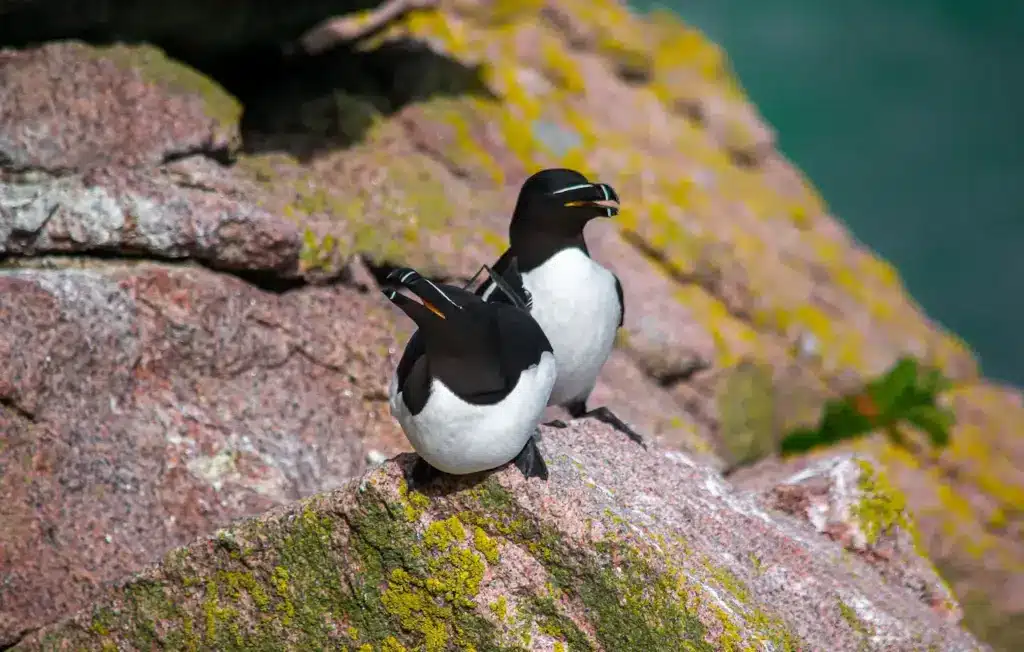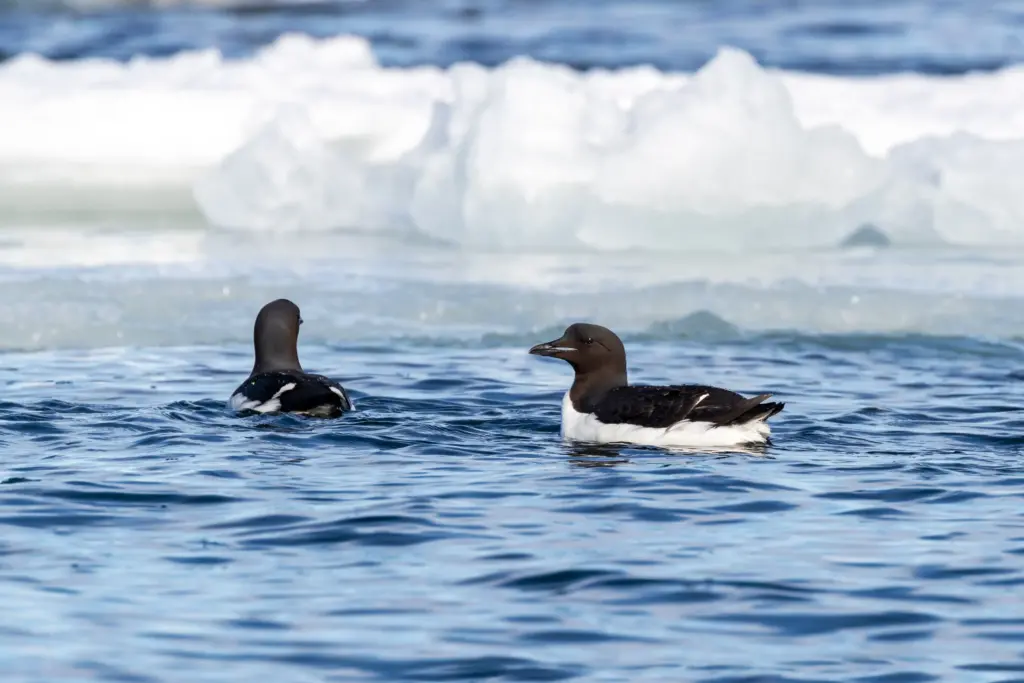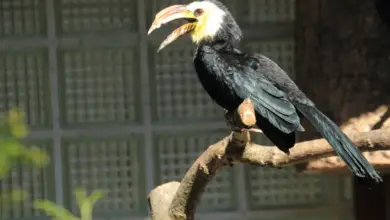Uria – Auks
Uria is a genus of seabirds in the auk family known in Britain as guillemots, in most of North America as murres, and in Newfoundland and Labrador as turr.

Description
These are medium-sized birds with mainly brown or black plumage in the breeding season.
Adult birds are black or brown on the head, neck, back and wings with white underparts. The bill is long and pointed. They have a small rounded black tail. The lower face becomes white in winter.
The flight is strong and direct, and these species have fast wing beats due to the short wings.
Distribution
They breed on the coasts of the northern Atlantic and Pacific Oceans.
Species:
- Common Guillemot or Common Murre, Uria aalge
- Brunnich’s Guillemot or Thick-billed Murre, Uria lomvia
Uria auks are relatives of the Razorbill, Little Auk and the extinct Great Auk and together make up the tribe Alcini. Despite the similar common names, they are not so closely related to the Cepphus guillemots which form the tribe Cepphini.
Some prehistoric Uria species are also known:
- Urias bordkorbi (Monterey or Sisquoc Late Miocene of Lompoc, USA)
- Uria affinis (Late Pleistocene of E USA) – possibly a subspecies of U. lomvia
- Uria paleohesperis
U. brodkorbi is interesting insofar as it is the only known occurrence of the Alcini tribe outside the Atlantic. It suggests that the Uria species, which are the sister taxon to all the other Alcini, and like them are usually believed to have evolved in the Atlantic, may have evolved in the Caribbean or possibly close to the Isthmus of Panama.

Breeding
These birds breed in large colonies on coastal cliffs, their single egg being laid directly on a cliff ledge.
They move south in winter to keep in ice-free waters.
Diet / Feeding
They dive for food from the surface, swimming underwater.
They mainly eat fish and crustaceans, also some mollusks, insects and plant material.
Calls / Vocalizations
Urias guillemots produces a variety of harsh cackling calls at the breeding colonies, but are silent at sea.

